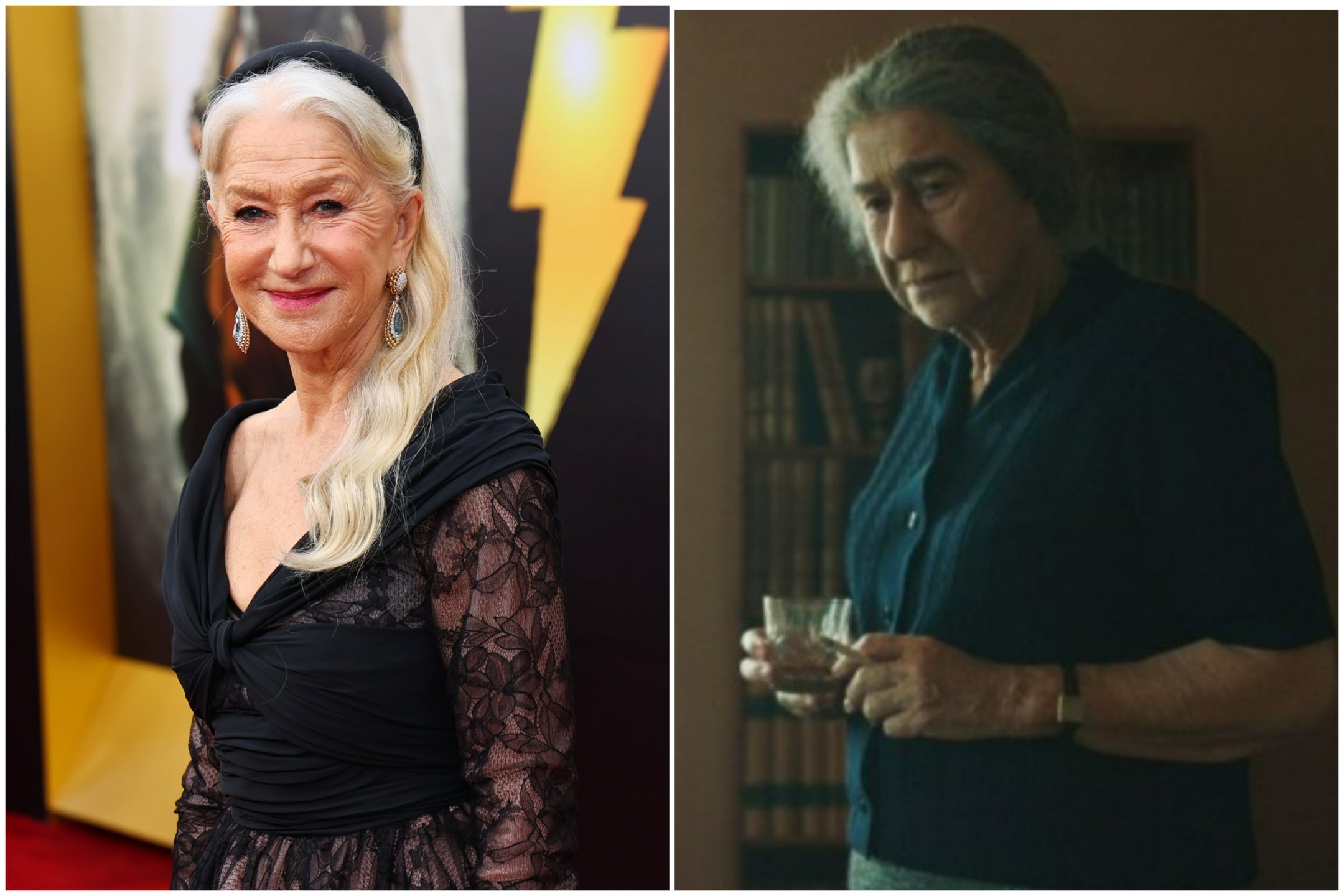Helen Mirren says she tried to ‘turn a blind eye’ to casting criticism after Jewish role backlash
‘It’s a legitimate discussion,’ actor said, referring to her role as former Israeli prime minister Golda Meir
Your support helps us to tell the story
From reproductive rights to climate change to Big Tech, The Independent is on the ground when the story is developing. Whether it's investigating the financials of Elon Musk's pro-Trump PAC or producing our latest documentary, 'The A Word', which shines a light on the American women fighting for reproductive rights, we know how important it is to parse out the facts from the messaging.
At such a critical moment in US history, we need reporters on the ground. Your donation allows us to keep sending journalists to speak to both sides of the story.
The Independent is trusted by Americans across the entire political spectrum. And unlike many other quality news outlets, we choose not to lock Americans out of our reporting and analysis with paywalls. We believe quality journalism should be available to everyone, paid for by those who can afford it.
Your support makes all the difference.Helen Mirren has discussed her role as former Israeli prime minister Golda Meir in a new interview.
When the movie Golda was in production last year, there had been some criticism over Mirren’s casting, given that she is not Jewish.
Jewish actor Maureen Lipman had said of Mirren’s casting: “Helen will be great. Good actress, sexy and intelligent. Looks the part. [But] my opinion, and that’s what it is, a mere opinion, is that if the character’s race, creed or gender drives or defines the portrayal then the correct – for want of an umbrella [term] – ethnicity should be a priority.”
Speaking in a new interview with Deadline ahead of the movie’s release this August, Mirren said: “I’ve played many Jewish roles before, but Golda was so, so archetypal. So I can understand people saying, ‘Should this really happen?’ But you know, there we go. It’s a legitimate discussion, I think.
“I think it only happened with Golda, because she was such a powerful, archetypal character.”
When asked whether casting criticism affects her while she is filming, Mirren said: “But we can turn a blind eye to that as well, which is what I do. Just not go there really, just not go there.”
At the Berlin Film Festival in February, the movie’s director Guy Nattiv defended his decision to cast Mirren. “I can tell you from my point of view as a Jewish Israeli director, when I met Helen, I felt like I was meeting a family member, an aunt... a Jewish person, because, for me, she had the Jewish chops to play Golda.”
He added: “She totally got everything, every nook and cranny in this character. For me the fact that I adore Helen and I think she’s one of the best actresses in the world, I just found her very authentic.”

Last year, Mirren said of the controversy: “It was certainly a question that I had, before I accepted the role.
“[Meir] is a very important person in Israeli history. I said, ‘Look Guy, I’m not Jewish, and if you want to think about that, and decide to go in a different direction, no hard feelings. I will absolutely understand.’ But he very much wanted me to play the role, and off we went.
“I do believe it is a discussion that has to be had – it’s utterly legitimate. [But] You know, if someone who’s not Jewish can’t play Jewish, does someone who’s Jewish play someone who’s not Jewish?”

Watch Apple TV+ free for 7 days
New subscribers only. £8.99/mo. after free trial. Plan auto-renews until cancelled

Watch Apple TV+ free for 7 days
New subscribers only. £8.99/mo. after free trial. Plan auto-renews until cancelled
There has been much discussion in recent years about the issue of “Jewface” (non-Jewish actors playing Jewish roles) from Felicity Jones’s portrayal of Ruth Bader Ginsberg in On the Basis of Sex to The Marvellous Mrs Maisel’s Rachel Brosnahan.
“In a time when the importance of representation is seen as so essential and so front and centre, why does ours constantly get breached even today in the thick of it?” Jewish actor Sarah Silverman asked in 2021, criticising the “long tradition” in a podcast interview.



